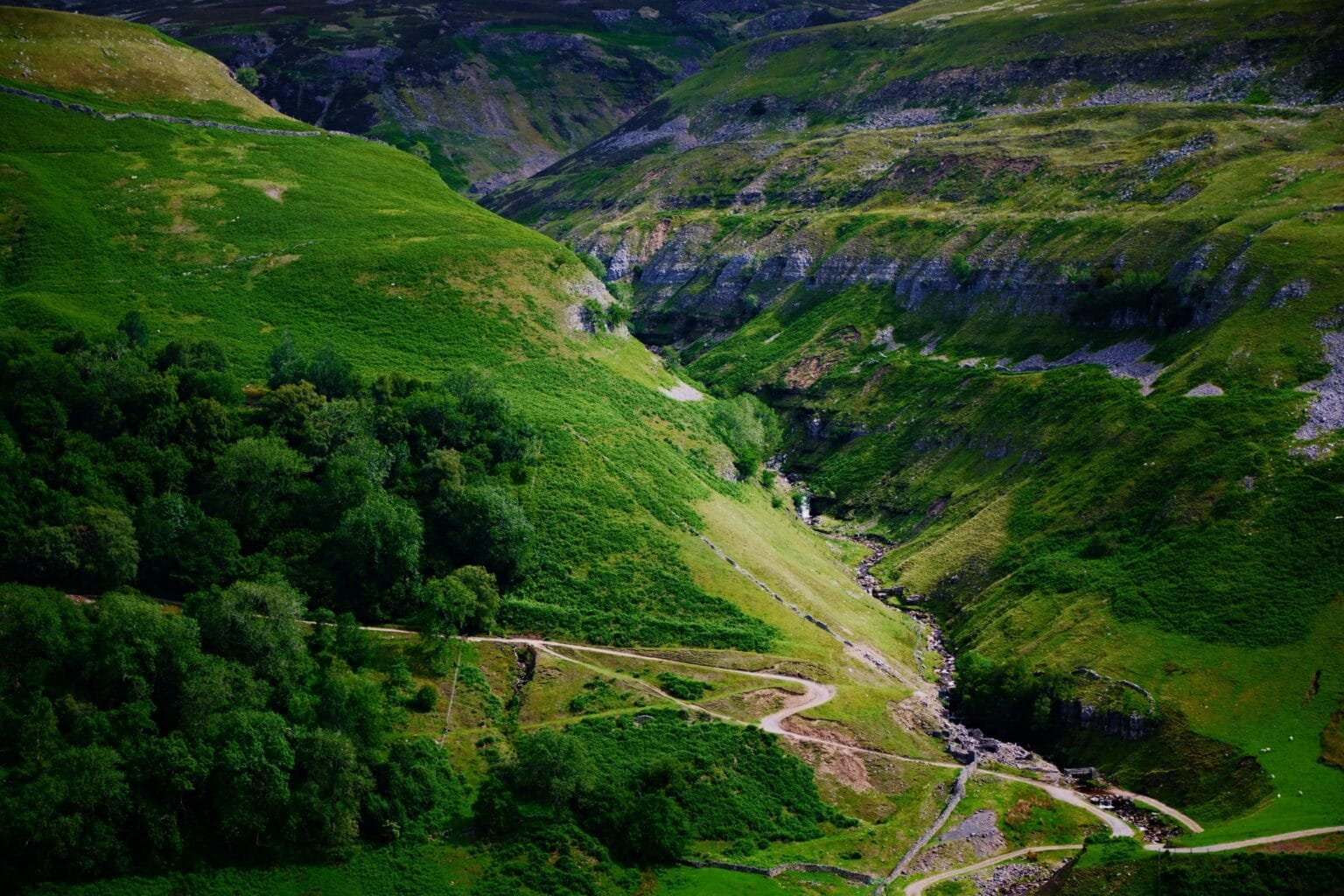
Top Hiking Areas In North England: Charming, Beautiful And Scenic
Hadrian’s Wall, Northumberland and Cumbria
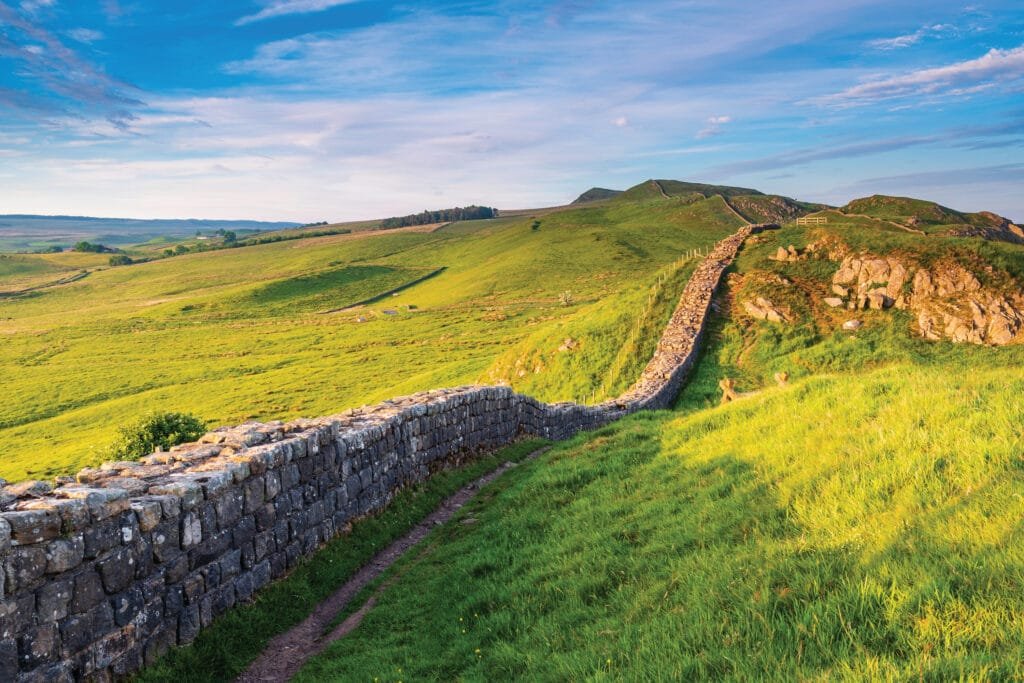
This self-guided stroll along Hadrian’s Wall National Trail allows you to take in the splendour of this magnificent edifice. It runs along 84 miles from Bowness on Solway on the west coast of England to Segedunum Fort on the east coast, passing through the magnificent landscape and ancient cities.
The path is well-marked, and despite its popularity as one of Northern England’s most popular tourist destinations, it preserves a sense of peaceful solitude. Take a break from your schedule to visit a Roman Fort and one of the finest museums in the area, such as Tullie House in Carlisle or Chesters Museum near Chollerford, or simply sit on Steel Crag and enjoy the spectacular views and peaceful isolation.
Scafell Pike, Lake District
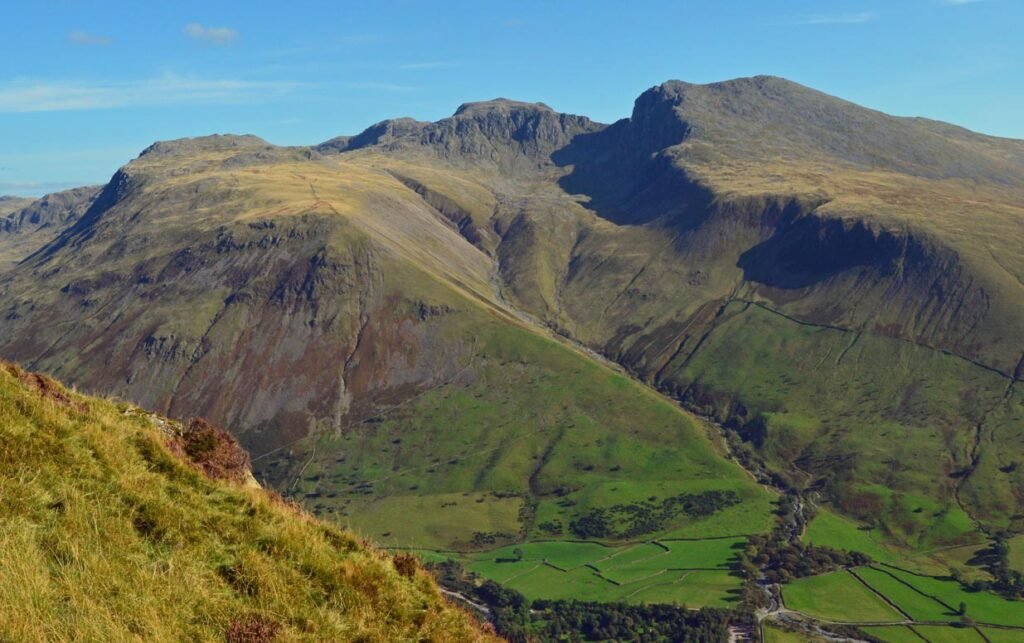
Scafell Pike, England’s tallest peak and war memorial, stands at 978 metres and is cared for by the National Trust as a consequence of a gift received after the war. Thousands of people visit Scafell Pike each year, thanks to Fix the Fells’ year-round work to maintain routes and protect the delicate montane ecosystem. The ascent to the summit should not be underestimated, therefore plan beforehand, use a map and compass, and verify mountain weather conditions before embarking. Scafell Pike in the Snow Before you go, make sure to check the weather forecast.
Scafell Pike is a challenging climb that should not be underestimated. It’s a difficult, steep walk that requires scrambling over difficult terrain, regardless of whatever path you pick. Whatever the season, planning and preparation are essential since there may be severe winds, rain, snow, extreme cold, or poor visibility. So, check the mountain forecast, dress appropriately, and know how to use your gear.
Ingleborough, Yorkshire Dales

Ingleborough, Yorkshire’s second tallest peak and one of the famed Three Peaks of the Dales, rises 723 metres above the surrounding countryside. It’s also one of the easiest to get there, thanks to a picturesque round path that starts in the little town of Clapham.
The walk begins with a stroll through woodland and alongside a river, followed by a steady scramble through a canyon to Gaping Gill, a natural cave on the Ingleborough hills.
Take some time to look around — the caving system there might fit St Paul’s Cathedral. From here, a short but steep ascent leads to Little Ingleborough and then to the main summit.
Horse Head Moor and Deepdale, Yorkshire

This is a great stroll for birdwatchers! It’s a five-and-a-half-mile walk over Horse Head Pass, through a lonely moorland ridge, and along the River Wharfe to Ouse, with both forest and river birds to accompany you. You’ll go from Yockenthwaite Bridge to Whernside and Pen-y-ghent before returning along the lovely River Wharfe. Before entering the Ouse, the Wharfe runs through the dales.
Malham Tarn, Yorkshire
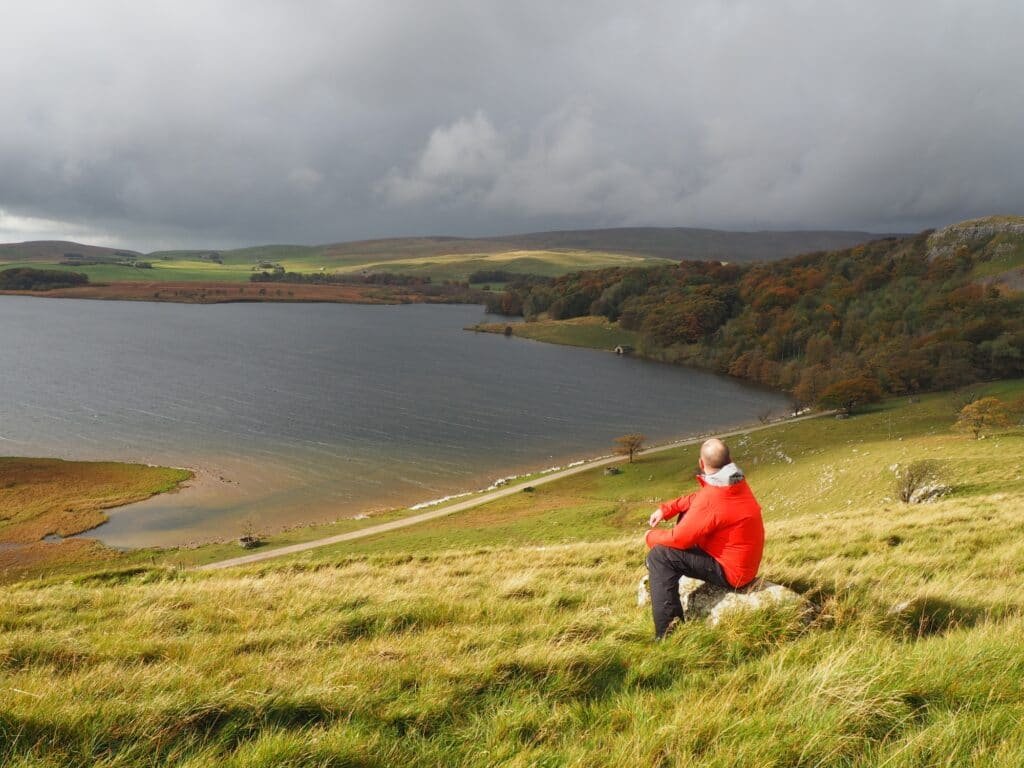
If you’ve got your fill of flowing waterfalls and towering hills, take a walk around Malham Tarn, (one of the UK’s top hiking areas) England’s highest lime-rich lake and home to a unique ecosystem of uncommon plants and animals. The vistas are as vast and dramatic as you’d expect from the Dales, but they’re peppered with archaeological indications from the region’s diverse past, reaching back to the Mesolithic age. Many of the lands around Fountains Abbey were cultivated by monks. Drovers from Scotland brought enormous herds of cattle through here to trade in the 18th century. Just before Dean Moor, the Smelt Mill Chimney is a reminder of the area’s more recent industrial past.
Cleveland Way
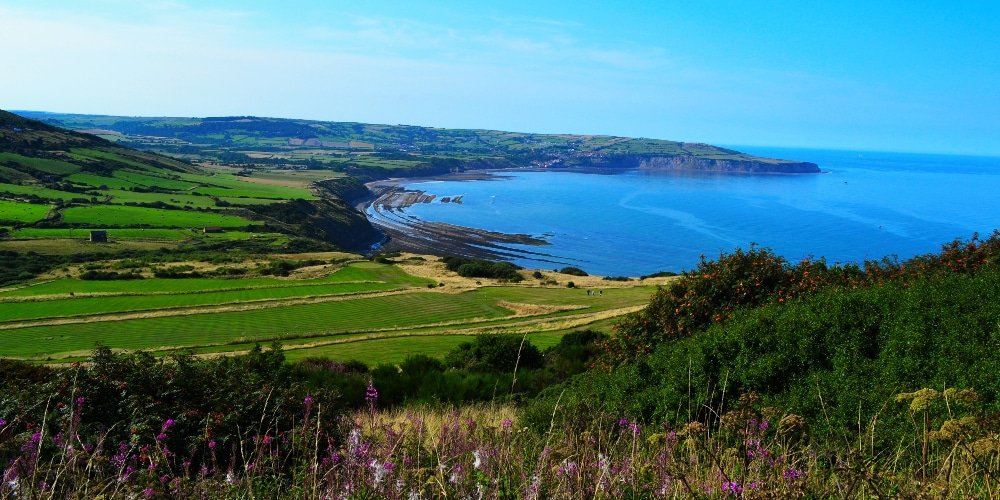
While you may explore Cleveland Way (one of the UK’s top hiking areas) at any time of year, the ideal time to observe the moorland heather in bloom is in late August and early September. The Cleveland Way, Yorkshire Wolds Way, and England Coast Path all intersect at Filey, making it the only spot in the UK where all three National Trails meet. The National Trail passes past Robin Hood’s Bay, a historic smuggler’s settlement, and the tourist seaside resorts of Scarborough and Whitby, which is home to Whitby Abbey, the inspiration for Bram Stoker’s Dracula. The Cleveland Way may be walked by anybody who is moderately fit. The route is difficult at times, particularly in the Cleveland Hills and along the coast, but this contributes to the whole experience.

